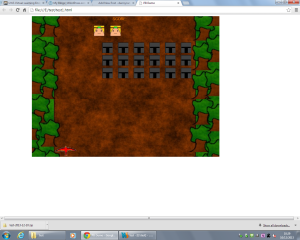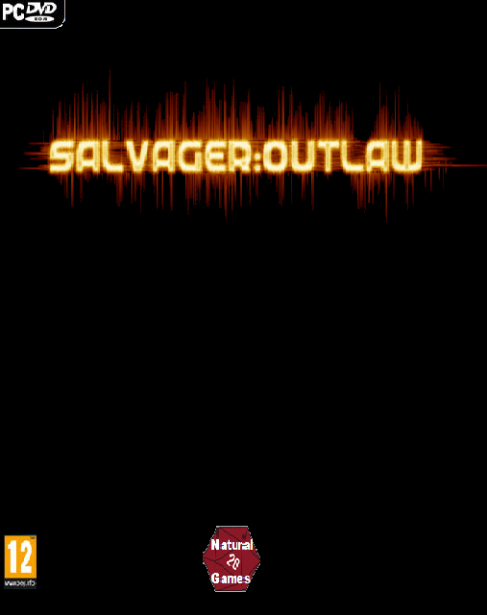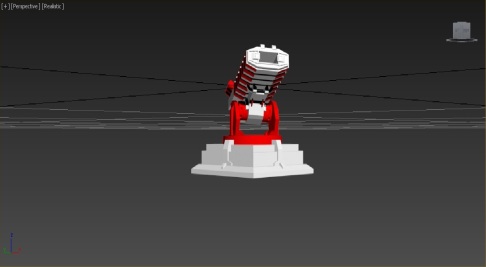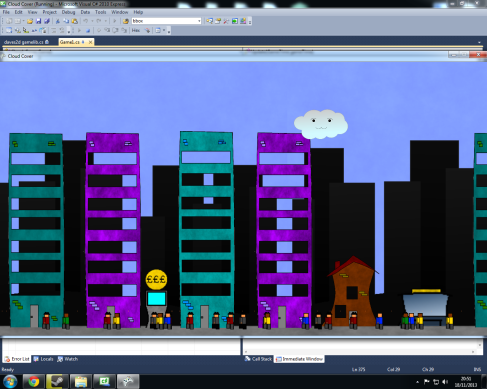(This is getting out of hand, I’ll have to put up the next one tomorrow! Sorry to those following this, I’ll endeavour to fix my bad timekeeping.)
Developing with a team is something that you will have to do at one point during your game making career. Thankfully, most courses have modules on this and will prepare you for the horrors and pitfalls of sticking to a schedule while also dealing with other people.
Currently we are making a game in unity in a group of 4. A simple project that draws upon past experience of most members. But there are many pitfalls you would not and could not predict. This weeks Game Design lesson is; Developing with a team and how to prevent yourself from getting arrested.
To give you an insight of how stressful it can be working in a team;
A friend of mine in another group in the same class as my unity group, has had: The animator tell him he has done no work for 7 weeks because other classes were more important, the programmer have to focus on other things due to a death in the family and the other designer disappear off the face of the earth and only leave a cryptic “I’m 300 miles away”.
In college, me and this friend worked with two other guys who, for most of the year, did not show up. It was only in the last week (And on the deadline day) that the programmer showed up to work.
Not the greatest horror stories but they are true and will happen to you. People will burn out, people will not care and people will not try.
(If you manage to get a team where everyone is passionate, hardworking and easy to work with. Send me an email, I’d love to come join.)
What you as the designer needs to do is make sure everyone is on track, in attendance and working. This can be as simple as just having a friendly chat with the team members when you get the chance. I’ve found that this tends to be the best way to keep a project moving forward. If you can, offer to buy lunch for the team if they make a lot of progress in a week or get some drinks. Like it or not, you’re a family and you should be as close as one.
To have a good development environment you should:
- Talk often both about the project and other things.
- Stay in contact, give constant updates.
- Give reasons for absence and give warning if you can.
- Hang out and have fun when you can.
- Make sure you pull your own weight; be passionate about what you do or leave.
It’s not always possible to do this though as you may be stuck with assholes, wasters and unmovable visionaries.
To deal with these problems, I’ve got a few tips but no sure fire methods yet.
Assholes
These are the guys who want to make the game about a weed smoking sperm cell who fights AIDS for your first commercial product. Sure, it might be a good idea to some, but not for a commercial release.
- Ditch them if you can.
If you can’t ditch them; You’re not the boss, your group is already too far in to cut people off, then;
- Assign them things that can’t be ruined.
Code is usually a good place, code can’t really be ruined. If it does the right thing, it’s good enough. Though you might want to send someone through it with a comb, just in case there are any surprises.
- Talk to them about the product
Before the rest, try talking to them. Most people understand what is okay and what isn’t once they know what is being made or aimed for. Give them the benefit of the doubt and try explain what the team is doing before relying on the other methods.
Wasters
Procrastinators and time wasters. They are the bane of a product. Even worse than the Assholes, Wasters don’t want to have any part of the product other than the payment at the end. They can often be ditched by talking to those with the power to do so. Though if this isn’t possible, i.e. In a university group. Then you can rely on;
- Don’t ask, don’t tell
If they are happy to do nothing towards the project, don’t give them a part. When they start panicking at the end of the project as they realise they’ve wasted their time. You can decide what to do.
- Give them the optional extras
If they need to put something down as theirs, give them the optional things. That way if they waste their time, you will still have a finished product at the end.
Unmovable Visionaries
You may never encounter one of these (You might be one yourself, get tested) but they are the worst to work with.
The most important part of developing with a team is collaboration. Everyone’s opinion and voice should be heard and taken into account. You may be worried about your vision warping to include elements you don’t want. That’s fine, keep that one in your personal pile and make it yourself OR hire a team to do it for you. Developing with people requires respect and the ability to bend your ideas to fit the project.
Unmovable visionaries do not understand this and will remain rooted on their idea even if its a bad one. There are ways of working with these people though.
- Be careful with your wording, UVs can be very protective
Think of the UV’s idea as a bear cub, your job is to turn that cub into a dog without openly saying you’re changing it. A difficult feat to perform but one you will have to learn. This is also useful when talking with publishers.
- Rely on democracy
At the end of the day, the group gets to decide. If one member says “Screw you guys, I’m goin home” and takes his idea off the table, lest it be criticised. So be it. Start fresh and let them pout. As many developers will tell you;
flexibility is key to success.
And lastly;
- Stand your ground
This is difficult for some people to do and it shouldn’t be. Don’t be threatened by the Unmovable Visionary just because (s)he uses big words or is older than you. You’re in the same boat and staying quiet while they lead you further to sea is just going to make it harder to turn back when you need to.
—-
Developing with a team is great chance to meet people and network and it is definitely something everyone who wants to make games should do. Go to Game Jams by yourself and throw yourself into a team. Ask around on forums or even start a project and gather people together.
If anyone needs a writer and designer just give me a message. I’ve got five months off soon and I need something to do!
Previous Next




